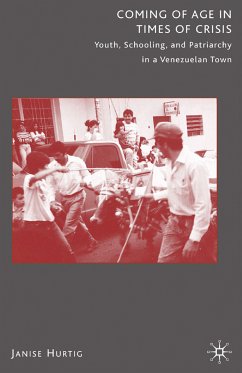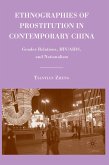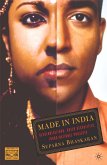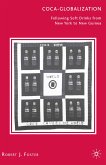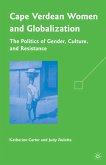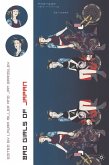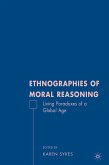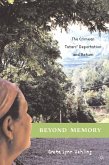Dieser Download kann aus rechtlichen Gründen nur mit Rechnungsadresse in A, B, BG, CY, CZ, D, DK, EW, E, FIN, F, GR, HR, H, IRL, I, LT, L, LR, M, NL, PL, P, R, S, SLO, SK ausgeliefert werden.
'In this vivid account of secondary school students' experiences of crisis in the Venezuelan Andes, Hurtig demonstrates close connections among state-society relations at local, national, and international levels. Hurtig's skillful analysis of the gendered dimensions of family life and secondary schooling shedsnew light on questions about educational processes and social change. A must read for comparative educators, anthropologists of education, and everyone interested in schooling around the world.' - Amy Stambach, author of Lessons from Mount Kilimanjaro: Schooling, Community, and Gender in East Africa
'Hurtig cogently argues for 'patriarchy' as a useful analytic concept, and specifically 'negligent patriarchy,' as a cultural dynamic entailing both the production of desires and the normalizedexpectation of disappointment. This conceptual work enables her to diagnose gendered contradictions grounded in inequality and exploitation imbricated across house, street, nation, and imperialist realms. This is feminist ethnography at its most powerful.' - Lessie Jo Frazier, Assistant Professor, Gender Studies, Indiana University, USA

